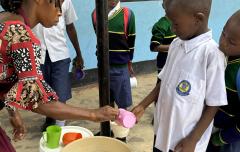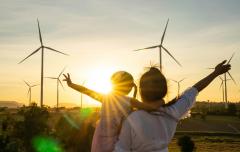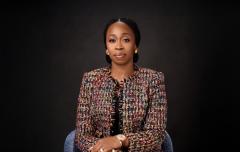IEA presents World Energy Outlook at United Nations
4 December 2015 - Dr Fatih Birol, the newly appointed Executive Director of the International Energy Agency, has presented its World Energy Outlook (WEO) 2015 at an SEforALL event in New York – the first time that the annual report has been presented at the United Nations.
WEO 2015 calls for urgent transformative innovations in the energy sector to address climate change and end energy poverty. Clean energy is a key to making progress on the Sustainable Development Goal on energy (SDG7), which in turn can unlock the achievement of all other SDGs.
Speaking at UN Headquarters on 1 December, Dr Birol underscored the importance of understanding the implications of low oil prices in terms of energy poverty, energy security and climate change. He said investments in the oil and gas sector had fallen by about 20 percent in 2013 and a similar fall was expected for the year 2014 – the first time in decades that such declines have been seen.
The most probable scenario presented in WEO-2015 estimates that by 2030 still some 800 million people, mostly in sub-Saharan Africa, may be left without access to electricity. But Dr Birol was optimistic that technological and business model innovations in decentralized distributed generation based on renewables can significantly reduce energy poverty.
Stressing the need for urgent action on climate change, Dr Birol called for a clear direction by the Paris Climate Conference (COP 21) to shape the global energy system.
Mohinder Gulati, Chief Operating Officer of Sustainable Energy for All, echoed the need for accelerated action, especially in off-grid technology solutions. Such innovations, combined with greater regional coordination, would be essential in achieving SDG7.
He said catastrophic events induced by climate change could wipe out hard-won development gains in many emerging economies, and volatility of weather patterns could have a serious adverse impact on energy, water, agriculture and food security, as well as public health through the emergence of new disease vectors. It was therefore imperative that both the energy poverty and climate change challenges are addressed simultaneously and urgently.
H.E. Mr. Y Halit Cevik, Ambassador and Permanent Representative of Turkey, underscored the central importance of energy in the 2030 Agenda for Sustainable Development, and the efforts of the G20 under the Turkish Presidency that have led to the development and endorsement of the G-20 Energy Access Action Plan for eliminating energy poverty in Sub-Sharan Africa, supported by SEforALL and its partners.
H.E. Mr. Heiko Thoms, Ambassador and Deputy Permanent Representative of Germany to the United Nations, re-affirmed his country’s commitment to ensuring energy access for 100 million more people by the year 2030. He cited Germany’s new policy aimed at reducing greenhouse gases at least 80 percent by 2050, and doubling the percentage of renewables in the energy mix by 2035.
Ambassador and Deputy Permanent Representative of Pakistan to the United Nations, H.E. Mr. Nabeel Munir, stressed the cross-cutting nature of SDG7 and how its achievement impacts education, health, and development as a whole.



